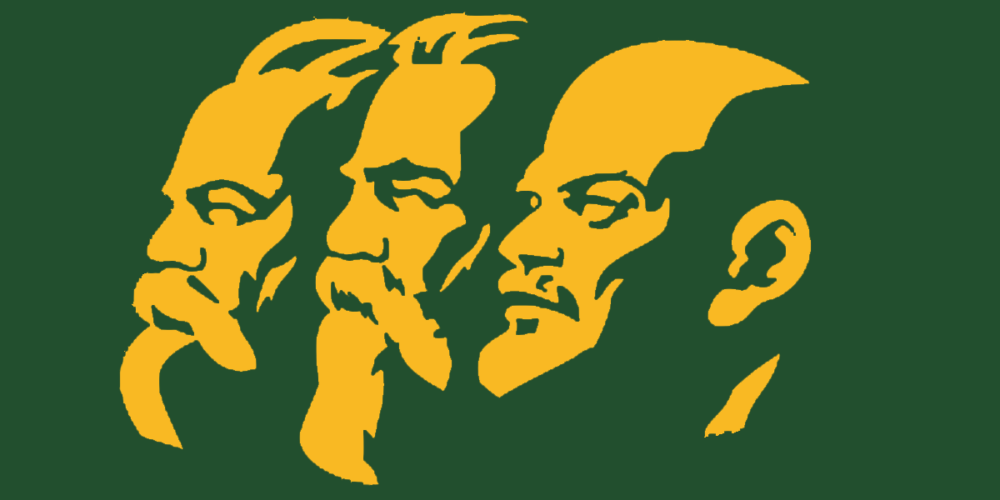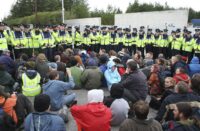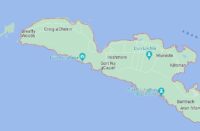In March I wrote a piece suggesting it is time for a new Popular Front, given the many multifaceted and related crisis humanity faces, but one that must be both eco-socialist and anti-capitalist given ecological and military developments since the 1930s.
In our 26th Congress document we have already called for a:
Unity Programme will be developed with the support of all progressive allies who are willing to build a united front, where each party or group can maintain its autonomy but remains committed to working towards the fulfilment of shared strategic objectives and pursuing the material basis for a united Ireland in a planned, democratic and participative manner.
In addition, we have suggested a number of key areas to build on, including an environmental plan, a public services plan and an industrial and financial strategy.
Advancing on from our Congress resolution, in this piece I will outline what a common platform or programme might have as core principles, with a view to uniting progressive forces. This is a brief overview and details would need to be worked out collaboratively as part of the process of building such a force with others.
1. Neutrality and new global alliances
Key to addressing climate change and building international peace is a strong anti-war position. One that bravely and confidently supports negotiated settlements of disputes and actively seeks to eliminate nuclear weapons and reduce global military spending. Ireland’s neutrality, and the triple-lock arrangement of Government, Dáil and United Nations consent, must be maintained and actively strengthened. Our concept of neutrality has never been passive and so, Ireland must reposition itself globally as part of the non-aligned movement and anti-colonial nations. This means having a sovereign position on foreign policy. We should support reform of the UN to provide much greater power for the Assembly.
2. Substantive equality
The perverse nature of Ireland’s recent, liberal approach to equality (that of “opportunity” and individual rights) has seen greater “freedoms” for individuals and for some marginalised groups while at the same time seeing inequality and poverty grow and basics like housing and healthcare get much worse. A strong commitment to substantive equality is needed which is focused on equality of outcome. One that actively reduces the wealth divide by redistributing wealth from the rich via both workplace (wages versus profits) and State (taxation and universal services) policies and focuses on issues like jobs, wages, housing, healthcare, and education.
3. Climate, ecology, and the reorientation of growth
One of the core reasons for the urgent need of this unity programme is the multi-faceted existential ecological crisis humanity faces, with climate change being only one, but clearly the most urgent, element of it. While a debate exists around degrowth and shared responsibility, there is no doubt that a reorientation of growth is required. Some carbon- and methane-producing activities need to be ceased immediately, others may be gradually wound down, and new activity is also needed too to assist in this transition. This reorientation must be both people-centred to ensure no one is left behind and substantive equality maintained, but also justice-orientated in actively punishing the countries and corporations at fault and making them pay the heaviest price.
4. Working conditions and rebalancing power
Necessary to building support and material force for this programme is a focus on rebalancing power in the economy. Currently, workers have little or no power or say in the workplace, the point of production. The laws are orientated to the supremacy of the rights of property and capital and the rights of business to manage their labour. Workers need to be able to organise and unionise, free from harassment and union-busting tactics. Creating a worker-supportive industrial environment would increase trade union density, collective bargaining, and power in the economy. This would significantly improve working conditions and redistribute wealth, over time, without the need to legislate in many areas of work. Legislating for the right to organise is a qualitative step forward, more valuable than mere quantitative adjustments to minimum wages, etc. A highly organised workforce is necessary to building substantial power behind any popular front.
5. United Ireland and a new democracy
A partitioned Ireland remains a major weakness and point of division on our island, one that is used to bolster reactionary forces south and north. Momentum is growing and is now significantly behind a United Ireland. It should be clear, however, from the above points that a United Ireland should not just be an incorporation of the 6 counties into the 26 counties to make a 32-county “Free State”. It is a seismic opportunity to recalibrate democracy on the island and draw upon the radical democratic traditions of Catholics, Protestants, and dissenters (as well as new cultures and the non-religious) that inhabit our island. Young people, north and south, in favour of a United Ireland do not want the same cute-hoor politics that exists on both sides of the border. A United Ireland is an opportunity for something much more substantial and should be fought for.
While these might be the core topics for the basis of a unity programme for a popular front it has deliberately not dealt head-on with Ireland’s membership of the EU. There exists a great deal of confusion surrounding the EU, what it is versus what it could or should be, and this necessarily blurs debates on membership of it. Mobilising around these 5 areas will however inevitably bring conflict with the EU and expose its true nature. This may then develop a much more concrete critique of the EU by active forces based on real experience as opposed to theoretical debates and therefore be the basis of a much stronger, more politically conscious position in the long run. It will ensure that the dominant critique of the EU remains solidly progressive rather than narrow, nationalist or conspiratorial.
This article has built on the opening question last month on the need for a new popular front and has presented some core topics that a unity programme could be collaboratively built on with other forces. Next month I hope to write a third and final piece on organisational form and what that might look like.






